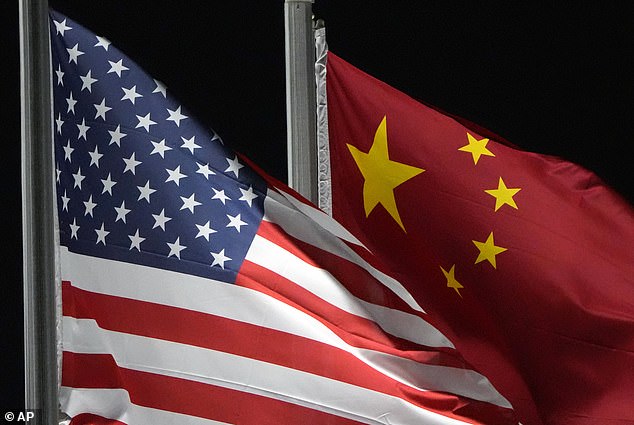What prompted the FBI to urge iPhone and Android users to ‘stop texting’
The FBI on Tuesday implored iPhone and Android users to stop texting each other, fearing their messages could be hacked.
The unprecedented move came after the agency found that exchanges between the two brands leave messages vulnerable, suggesting that Americans should use encrypted apps like WhatsApp to prevent third parties from accessing conversations.
The warning stemmed from the China-linked hacking campaign known as Salt Typhoon, which reportedly breached several US networks.
Now US officials have revealed that a A “large amount” of Americans’ cell phone data was stolen during the attacks.
“The scale, depth and scope of Chinese hacking is absolutely mind-boggling – that we would allow as much as has happened over the past year is terrifying,” Senator Richard Blumenth said during a classified briefing on Wednesday.
Deputy National Security Adviser Anne Neuberger noted that the China-linked efforts have hurt at least eight U.S. telecom companies and dozens of countries since emerging earlier this year.
Federal agencies have been investigating the true extent of the Asian country’s operations in recent months but still came up empty-handed.
White House officials said at least eight U.S. telecommunications companies have been attacked by a Chinese hacking campaign. The statement comes as the FBI warned iPhone and Android users not to text each other
Salt Typhoon previously targeted the phones of Donald Trump and Senator JD Vance, along with people associated with Vice President Kamala Harris.
AT&T, Verizon, Lumen Technology and T-Mobile also confirmed breaches.
Jeff Greene, executive assistant director for cybersecurity at CISA, said: “At this point, the hardening guidelines we are specifically issuing would make it much more difficult to continue the activity we have seen among victims.
“These are not compromises in terms of how deeply compromised a victim might be, or what the actor might have done.”
T-Mobile and Lumen said attacks were detected, but they found none evidence that customer data was accessed on its network.
Verizon said: “Several weeks ago, we became aware that a highly sophisticated nation-state actor had accessed several telco networks in the country, including Verizon,” adding that the incident targeted a very small subset of individuals in the government and politics.
And AT&T’s statement said it is “working in close coordination with federal law enforcement, industry partners and cybersecurity experts to identify and remediate any impacts to our networks.”
Greene warned iPhone and Android users, urging them to be vigilant during the hacking campaign.
He told it Politics that people should “use your encrypted communications where you have them,” adding that “that we certainly need to do, kind of look at what it means in the long term, how we secure our networks.”

The campaign, known as Salt Typhoon, emerged earlier this year and officials say the groups have ties to China
Encrypted apps protect users’ data by converting their phone calls and text messages into an unreadable format to prevent dangerous parties from gaining unauthorized access.
“Our suggestion, what we’ve been telling people internally, is not new here: Encryption is your friend, whether it’s text messaging or if you have the ability to use encrypted voice communications,” Greene told NBC News.
“Even if the adversary can intercept the data, if it is encrypted, it will make it impossible.”
China has rejected accusations from US officials that it is engaged in cyber espionage targeting Americans.
On Tuesday, a spokesperson for the Chinese embassy in Washington called the American accusations “disinformation.”
The Chinese government “strongly opposes and combats all types of cyber attacks,” spokesman Liu Pengyu wrote in an emailed statement to The Associated Press.
“The U.S. must stop its own cyberattacks against other countries and refrain from using cybersecurity to smear and defame China.”
